Please switch to a modern browser (e.g. Google Chrome, Firefox or Microsoft Edge) in order to enjoy the best user experience.
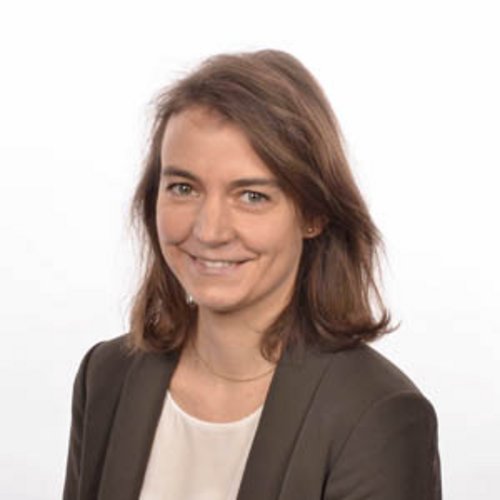
Economist for Environment, Circular Economy and Sustainability
Tel: +49 221 4981-838 Mail: Lichtenthaeler@iwkoeln.deResearch unit
Fluchs, Sarah / Neligan, Adriana, 2023, Urban Mining für eine zirkuläre Wirtschaft. Wie hoch sind die Rohstoffpotenziale durch Urban Mining?, IW-Report, Nr. 2, Köln / Berlin
Zur Studie
Fluchs, Sarah / Schleicher, Carmen, 2022, Der materielle Stoffwechsel Nordrhein-Westfalens. Materialflüsse und ihre Bedeutung für die Kreislaufwirtschaft, IW-Report, Nr. 68, Köln
Zur Studie
Fluchs, Sarah / Neligan, Adriana / Wendland, Finn Arnd, 2022, Klimaschutzinvestitionen, in: IW-Trends, 49. Jg., Nr. 2, S. 55-72
Zur Studie
Fluchs, Sarah / Neligan, Adriana / Schleicher, Carmen / Schmitz, Edgar, 2022, Zirkuläre Geschäftsmodelle. Wie zirkulär sind Unternehmen?, IW-Report, Nr. 27, Köln / Berlin
Zur Studie
Lichtenthäler, Sarah / Neligan, Adriana, 2023, How Circular Are Businesses in Germany? in: Intereconomics: Rethinking Resoucrce Efficiencey: Europe's Transition to a Circular Economy, Volume 58, Nr. 2, S.79-86
Zur Studie
Essays on the international market diffusion of electric vehicles : an assessment of government incentives. 2020. (Dissertation, RWTH Aachen).
The diffusion of electric mobility in the European Union and beyond. 2020. Fluchs, S. Transportation Research Part D: Transport and Environment. Vol 86. 1361-9209.
Government Incentives for EV Adoption: Classification of Existing Incentives and Assessment of Their Effectiveness. 2019. Fluchs, S. USAEE Working Paper No. 19-393.
Customer Journeys in der Elektromobilität. 2019. Kasperk, G., Fluchs, S. In: Mobilität in Zeiten der Veränderung, Proff, H. (Hrsg): Springer Gabler. 467 – 491.
Grundlagen. 2018. Kampker, A.; Schnettler, A.; Thomes, P.; Kasperk, G.; Brost, W.; Deutskens, C.; Kreisköther, K.; Fluchs, S.; Förstmann, R.; Nee, C.; Meckelnborg, A.; Drauz, R. 2018. In: Elektromobilität, Kampker A., Vallée D., Schnettler A. (Hrsg): Springer Vieweg, Berlin, Heidelberg.
The Influence of Government Incentives on Electric Vehicle Adoption: Cross-national Comparison. 2017. Fluchs, S.; Kasperk, G. MAGKS Discussion Paper Series in Economics.
Geschäftsmodelle entlang der elektromobilen Wertschöpfungskette. 2018. Kasperk G., Fluchs S., Drauz R.. In: Kampker A., Vallée D., Schnettler A. (Hrsg) Elektromobilität. Springer Vieweg, Berlin, Heidelberg.
A low-carbon economy could be more readily achieved by improving resource efficiency and thinking in cycles. Consequently, we need a new understanding of economic activity and an alternative approach to raw materials.
IW
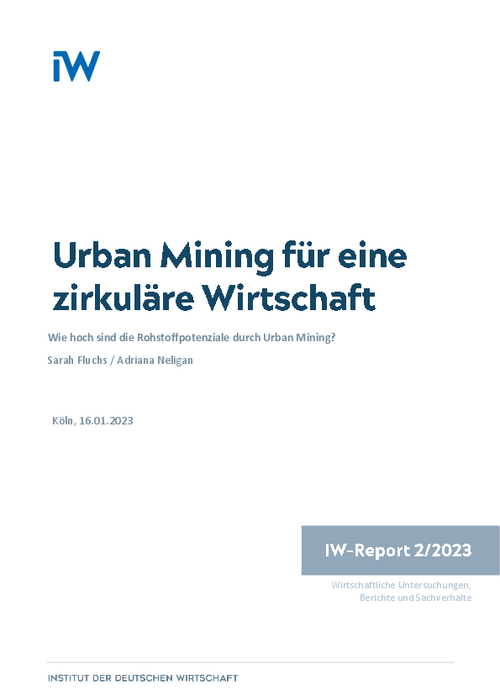
Natural resources are becoming increasingly scarce, one reason being that significantly more natural raw materials are currently being mined and processed worldwide than Earth can provide over the same period.
IW
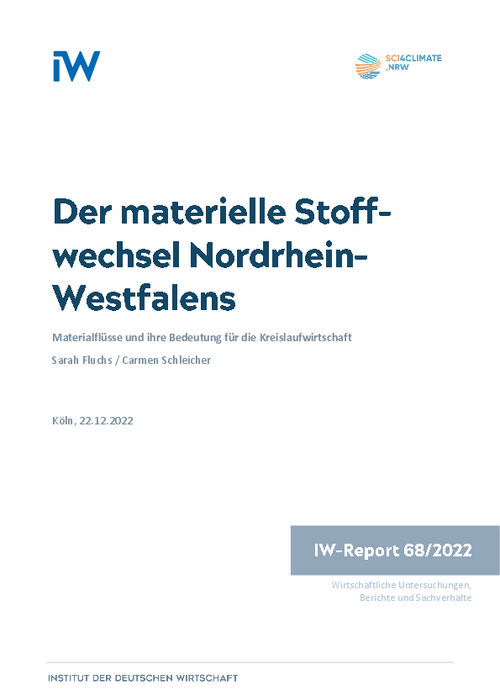
The current use of natural resources exceeds planetary limits and thus endangers the resilience of the Earth's ecosystem. The growing consumption of raw materials and the resulting increase in waste and emissions constitute a long-term threat to the environment and thus to the basis of human life.
IW
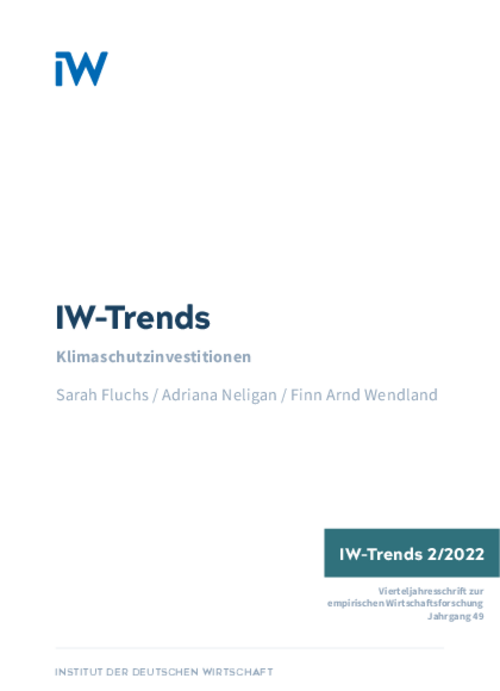
Achieving climate neutrality requires investment in technologies which protect the climate from global warming and necessitates a process of transformation in all sectors of the economy.
IW
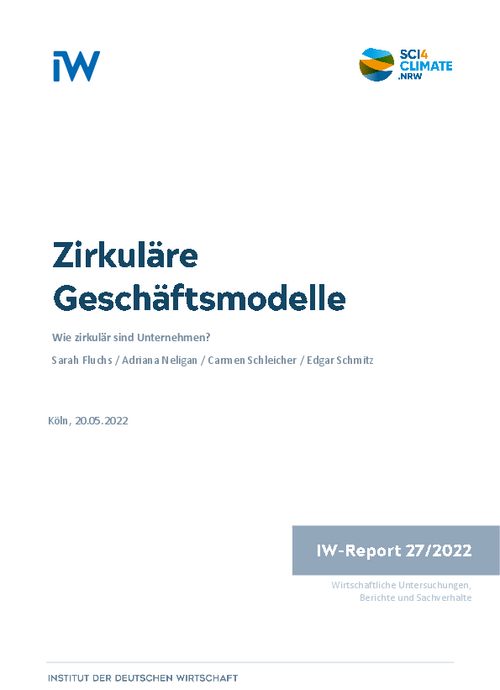
On the way to climate neutrality, the transition from a linear economy to a circular economy plays an important role. Resource cycles can be implemented in different ways in companies.
IW
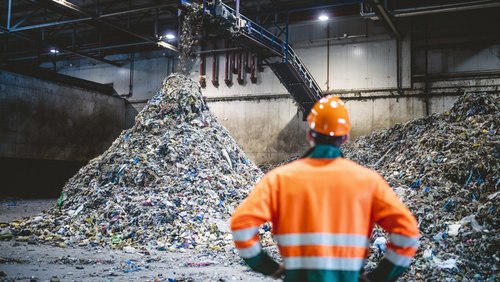
The European Commission aims at further reducing illegal waste exports and is therefore revising its regulations. Legal waste shipment is an important step towards an efficient circular economy: it reduces resource utilization and saves CO2.
IW